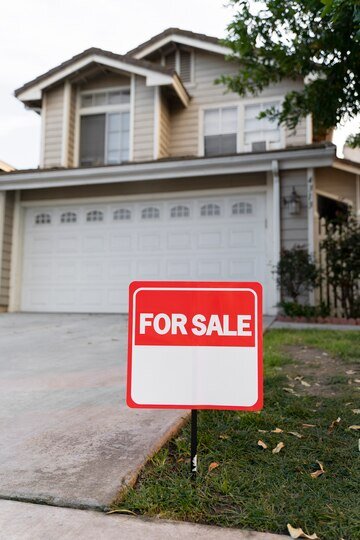The legal definition of a lien is a claim on assets through which the holder can obtain possession of those assets if certain debts are not paid. Though property liens can apply to various types of the debtor’s property, including cars, boats, and other large purchases, liens are most commonly associated with real estate.
If a lien is placed on your property and submitted to the county recorder’s office, it means you have fallen short of making payments on time in some capacity, and the entity you owe money to will have the ability to take ownership if you do not rectify the situation soon because of their lien rights.
What Is a Property Lien?
A lien is a claim against someone’s property that allows a non-owning party to hold an interest in the property until the owner repays a debt. Whatever the cause of the lien, you are obligated to pay back the debt to the debt collector, or the lien holder may be able to claim ownership of your home.
A common type of lien is created when people take out a mortgage loan, securing their debt with their home. If they fail to pay their mortgage, the lien holder has the right to take away their house as compensation.
There are two primary types of liens that could be placed on your real property — voluntary and involuntary.
Voluntary Lien
Voluntary liens are agreed upon by both the creditor and the property owner. For example, the mortgage lender through which you acquired your loan has a lien on your home in case you default on your mortgage payments. If the debt is not paid back in time, they would have the legal right to foreclose on the property and claim ownership.
Involuntary Lien
An involuntary lien is granted by a state agency or a court to ensure you pay some type of debt. Involuntary liens include IRS liens, attachment liens, and court-ordered judgment liens. For example, if someone takes legal action against you, you lose and fail to pay, the court may place a judgment lien on your home. Then, you are legally obligated to either pay back the debt or give up ownership of the home to the lien holder.

Who Can Put a Lien on Your House?
Your personal property could have a lien placed on it for many reasons. Some of them are directly related to the home itself, while others may surprise you. Here are a few parties that can place a lien on your home to stake a legal claim to ownership for unpaid debts.
Creditors
The most common type of lien on a house is a mortgage lien. Mortgage lenders are the most common lien holders. The creditor through which you secured financing for the home signed a legal document in which you gave consent for them to hold a lien for any debt owed in a written contract. However, if you have credit card debt, a credit card company could also place a lien on your property until the debt is paid.
Child Support or Alimony
Court-ordered child support and alimony payments to a former partner are considered debt if they are unpaid. That means if you fail to pay these obligations, you could find yourself facing county court-ordered involuntary liens on your home until you make the agreed-upon payments.
Property Tax Liens
If you fail to pay property taxes to the government, whether they are local or federal, the government can put a lien on your property. If you fail to cover the tax debt within the given timeframe, a government agency can initiate the foreclosure process and seize your home.
If you pay back on time, the tax lien will be nullified, and you can keep your home. In some states, though Texas is not one of them, local governments will sell tax liens to investors who want to collect interest or claim ownership of someone’s house due to unpaid taxes.
Attorney Fees
If you find yourself in a legal proceeding after which you must pay attorney fees, it is possible that the law firm will put a lien on your home until the fees are paid. This is a strategy used by some attorneys to ensure they are compensated by their clients after rendering legal services. If you do not pay the money owed to the attorney, you could be facing foreclosure.
Contractors
If contractors are owed money for doing work on your property, it’s important to pay them as soon as possible. Failing to pay these firms could result in a small claims court judgment that places a mechanic’s lien on your house, allowing the contractor to take possession of it if you do not pay them in full. This type of lien is also called a construction lien.
In summary, if you have any type of debt and a court rules in the other party’s favor, they could place liens on your property. If you fail to pay back the debt in time, then it will become the other party’s property after foreclosure. The way liens work, they would be able to acquire your home for a very small cost and all your equity in the home would be wasted.
What Happens to a Property Owner When a Lien Is Placed on Their House?

When a lien is placed on a person’s property, it becomes public record that there is a legal claim against the property because the owner has an unpaid debt. Liens prevent property owners from selling the property or refinancing. As with federal tax liens, you must have the lien removed before you can do either.
Typically, a traditional realtor won’t even list a property until all liens are resolved. However, it’s important to note that liens are placed on the property, not the owner, and some non-traditional buyers may complete the home sale even if the property has a lien on it.
Can You Remove a Lien on a Property?
Although you may contest the lien in court, the simplest way to remove a lien on your real property is to pay the debt you owe to the holder, either immediately or through a payment plan.
Although some parties may move quickly to foreclose and claim possession of your home, most will be patient in waiting for the payments to come in, especially because they often come with interest. Unless the lien is resolved, you will be unable to sell the home to traditional buyers.
However, if paying off the debt is not an option, or you simply want the property off your hands, you could always find cash home buyers in Texas, such as A-List Properties. Our team will buy your house as-is, thereby resolving your lien and putting money in your pocket. Give us a call at (972) 526-7042 to circumvent the existing lien on your property and sell your house for cash.

Zach Shelley
Zach Shelley is a seasoned real estate investor with a diverse network spanning across the nation. As the founder of his own real estate venture, Zach is committed to offering innovative solutions to homeowners facing various real estate challenges.. Through his dedication and strategic approach, Zach continues to make a significant impact in the real estate industry, providing homeowners with alternative pathways to navigate their property transactions.



